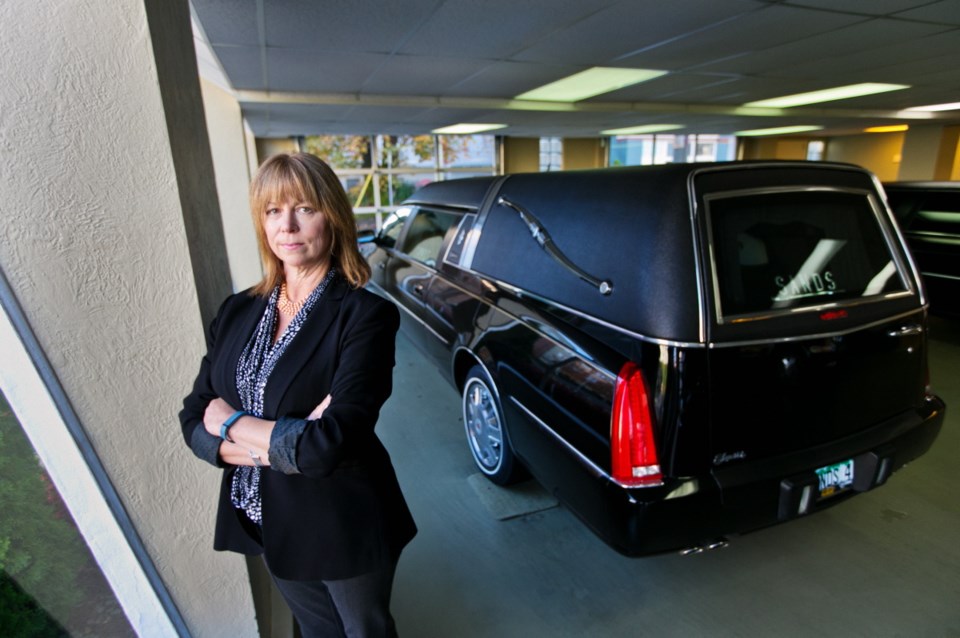Funeral homes say they have been subsidizing funeral costs for years for those unable to pay, because the amount the provincial government provides isn’t enough.
Last year, B.C. spent $3.2 million — $885,000 of it on Vancouver Island — for funeral services for nearly 2,000 people who did not have the resources or relatives with the funds to cover the costs, said the Ministry of Social Development and Social Innovation. About one in five of those — 419 — was on Vancouver Island.
The total supplement works out to an average of $1,600 per funeral.
The provincial payment is often a minimum of several hundred dollars less than the cost of the services, leaving it up to the goodwill of funeral providers to make up the difference, said Ellen Henry, the Victoria-based executive director of the British Columbia Funeral Association.
The provincial outlay has remained relatively constant over the past five years, but is significantly lower than the amount provided by Alberta, which Henry said is closer to the true cost of providing the services.
Alberta pays up to $3,223 for basic disposition ($2,100), embalming ($371), ceremony ($752) and the costs of cremation, caskets, urns and plots, Henry said.
In contrast, B.C. caps the funeral home’s basic service fee at $1,285, with provision for limited additional services up to $815, for a maximum of $2,100, plus other expenses such as transportation and up to $200 for a cremation urn, more for a casket and the cost of a burial or cremation plot.
“It is in good faith that funeral homes honour these rates for citizens who require assistance,” Henry said.
“While we would prefer to be paid the actual cost, we do understand that this is a service we can contribute to the underprivileged and to the province.”
Five years ago, the province spent $500,000 more on funerals — a total of $3.7 million — including $880,000 on the Island. The government could not confirm the total number of individuals subsidized in 2008-09, a provincial spokeswoman said.
The ministry will pay necessary funeral costs for someone who dies in B.C. when no resources are available from the estate of the deceased person or any “responsible person,” such as a spouse, parent of a minor or sponsor of an immigrant.
The provincial spokeswoman said funeral services vary between service providers, with some charging less than the maximum ministry rates and some charging more.
“The ministry will generally pay the lowest reasonable cost up to its maximum rates.”
The ministry will also defray the cost of funeral services if relatives or the estate cannot afford the entire cost.
Unlike some other provinces, B.C. does not require that deceased persons or their families be recipients of income assistance to qualify for provincial funeral funds. Immediate family members or others are required to apply for provincial help.
If a funeral home cannot locate family, they must approach the Public Guardian, who can apply for provincial assistance after checking whether there are Canada Pension Plan benefits or other options to cover the costs, Henry said.
The fees have not changed in B.C. for several years.
In 2008, the rate was set at $917, which was more than doubled to the current amount, the ministry noted. There are no plans to review the rates, the province said Friday.
“That’s disappointing,” Henry said, adding that Alberta reviews its fees every year.
Henry said that B.C.’s coverage is based on budget considerations with “no relationship to the actual cost for our members to provide the service. Funeral homes have been subsidizing the final arrangements of [some] British Columbians for many years.”



